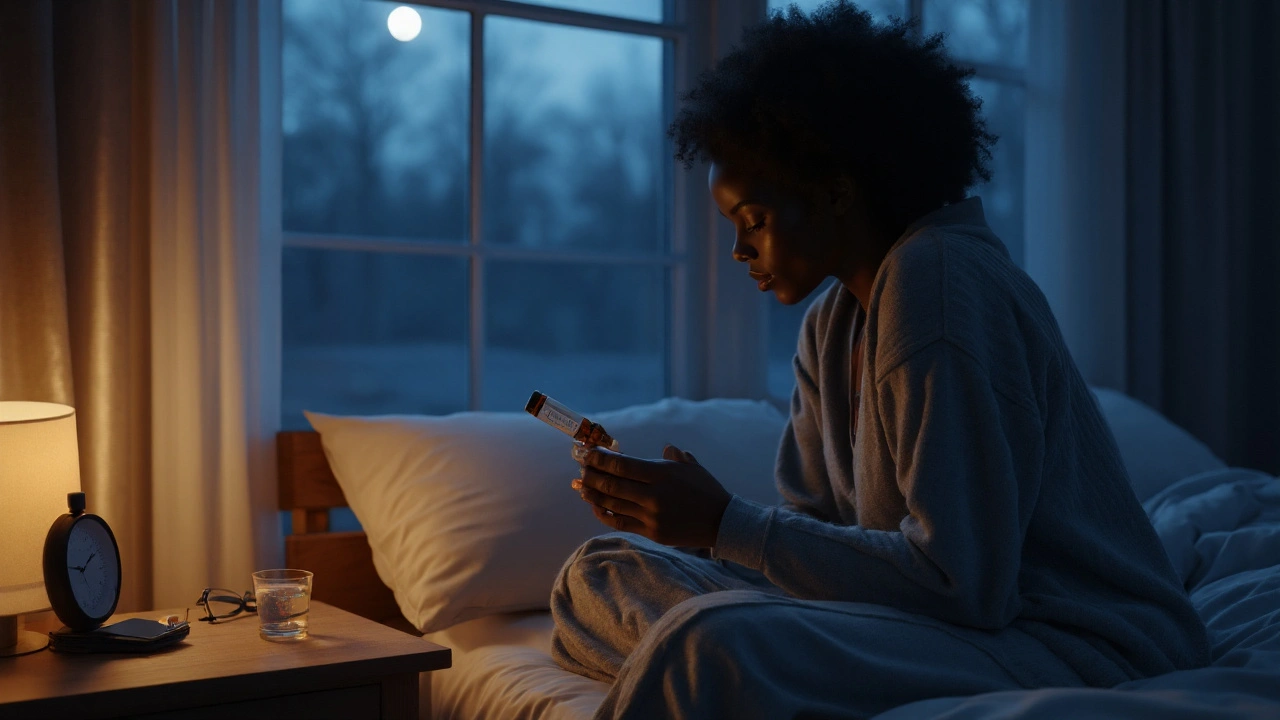Melatonin for Sleep: What It Is and How to Use It
If you toss and turn most nights, you’ve probably heard about melatonin. It’s a hormone your brain makes to tell you when it’s time to sleep. Taking a melatonin supplement can nudge that signal, especially when your internal clock is off because of travel, shift work, or late‑night screens.
The good news is melatonin isn’t a prescription drug and it’s generally safe for short‑term use. The trick is to know the right dose, the right timing, and the right situations where it actually helps.
How Melatonin Helps Your Body
When it gets dark, your pineal gland releases melatonin into the bloodstream. The rise in melatonin makes you feel sleepy, lowers body temperature, and slows down alertness. A supplement works by mimicking that natural spike.
Most people benefit when their melatonin levels are low or irregular. That’s common for jet lag, when you cross multiple time zones, or for night owls forced to wake up early. In those cases, a small dose taken 30‑60 minutes before bed can reset the clock.
Evidence shows melatonin can trim the time it takes to fall asleep by about 10‑20 minutes for many users. It doesn’t usually keep you asleep all night, but it can smooth the start of your sleep cycle.
Safe Use and Common Mistakes
Start low. A 0.5 mg to 1 mg dose is enough for most adults. Many over‑the‑counter products start at 3 mg, which can be too much and cause grogginess in the morning. If you’re not sure, try the smallest tablet and see how you feel.
Take it with a light snack or on an empty stomach—both work, but some people find a tiny bite helps avoid stomach upset. Aim for the same time each night; consistency trains your body better than occasional use.
Avoid bright screens and caffeine after you’ve taken melatonin. The supplement is trying to signal darkness, so a phone glow can work against it.
People with certain conditions—pregnant or nursing moms, kids, or those on blood thinners—should talk to a doctor before using melatonin. It’s also not a cure for chronic insomnia; if you can’t sleep for weeks, get professional help.
Finally, store melatonin in a cool, dry place. Heat and humidity can break down the powder and make it less effective.
Bottom line: melatonin is a handy tool for occasional sleep hiccups, especially when your schedule is out of sync. Keep the dose low, use it consistently, and pair it with good sleep hygiene—dark room, cool temperature, and no screens. With those basics, you’ll likely see faster sleep onset and wake up feeling more rested.
-
 VIEW POST
VIEW POSTMelatonin for Insomnia: Safe Doses, Timing, and Tips That Actually Work (2025 Guide)
Sep, 2 2025|20 CommentsStruggling to sleep? Learn when melatonin helps, the right dose and timing, who should avoid it, and smart safety tips. Evidence-backed, clear, and practical.